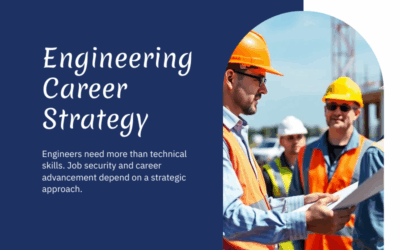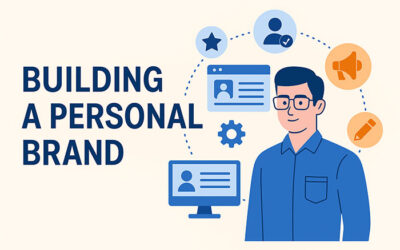Engineering interviews stand out as some of the most rigorous and technically challenging assessments in the professional landscape. Regardless of whether your ambition lies in software, mechanical, civil, electrical, or chemical engineering, prospective employers are consistently on the lookout for individuals who exhibit a harmonious blend of profound technical expertise, astute problem-solving capabilities, clear and effective communication skills, and a strong alignment with the company’s culture.
To equip you thoroughly for this demanding process, this extensive guide meticulously dissects the most frequently asked questions you are highly probable to encounter during your engineering interviews. These questions have been thoughtfully categorized by their distinct type and underlying purpose, offering you a structured approach to your preparation. By understanding the intent behind each question, you can craft more targeted and impactful responses, thereby significantly enhancing your chances of success.
1. Technical Knowledge and Problem-Solving Questions
These questions assess your foundational knowledge in your engineering discipline and how effectively you can apply it to solve problems.
Software Engineering
- Can you explain the differences between a process and a thread?
Employers want to know if you understand the core concepts of concurrency and system design. - What is the time complexity of your solution?
Often asked after a coding challenge, this checks your algorithmic knowledge. - Design a system to handle real-time chat messages.
This question tests both your architectural thinking and ability to scale a software system. - What is the difference between REST and GraphQL?
Frequently asked in full-stack or backend interviews, it probes your understanding of APIs and modern communication protocols.
Mechanical Engineering
- How would you calculate the stress and strain on a beam under load?
This basic question tests your grasp of material mechanics and structural analysis. - Explain the difference between centrifugal and centripetal force.
A concept many engineers should know, especially if working in dynamics or mechanical design. - What CAD software are you most familiar with, and how have you used it in previous projects?
Employers want hands-on proficiency, not just theoretical knowledge.
Electrical Engineering
- Describe the working principle of a transistor.
A fundamental question to assess understanding of circuit components. - How do you design a low-pass filter, and where would you use one?
Tests your knowledge of signal processing and circuit design. - What are the key differences between AC and DC motors?
This shows your knowledge of practical electrical applications and machinery.
Civil Engineering
- What factors influence the choice of foundation for a building?
Looks for a deep understanding of soil mechanics and structural design. - How would you estimate the load-bearing capacity of a beam or column?
Demonstrates analytical thinking and real-world structural engineering applications.
Chemical Engineering
- What is the difference between a CSTR and a PFR?
Questions like this evaluate your knowledge of reactor design. - Explain how you would optimize a heat exchanger for energy efficiency.
This question ties design theory with practical industrial applications.
2. Behavioral and Situational Questions
Employers want to understand how you handle pressure, collaborate with others, and demonstrate leadership and integrity.
Tell me about a time when you had to solve a complex problem under pressure.
Hiring managers look for candidates who remain calm and logical even under stress. Structure your answer using the STAR method (Situation, Task, Action, Result).
Describe a time when you made a mistake in a project. How did you handle it?
This is about accountability and learning from failure. Be honest but focus on what you did to rectify the situation and what you learned.
How do you prioritize tasks when managing multiple deadlines?
Engineering projects often run in parallel. This question tests your time management and decision-making skills.
Tell me about a conflict you had with a teammate. How was it resolved?
A classic question to gauge your interpersonal skills and emotional intelligence.
Have you ever taken the lead on a project or team?
This assesses leadership potential. Even if you weren’t the designated team lead, showing initiative matters.
3. Project and Experience-Based Questions
Interviewers want to dive deep into your hands-on experience and see how you’ve applied your skills.
Walk me through a project you’re most proud of. What role did you play?
Pick a project that aligns with the job you’re applying for. Be specific about your responsibilities and technical contributions.
What engineering challenges did you face in that project, and how did you overcome them?
This probes deeper into your critical thinking and creativity.
Have you worked with cross-functional teams? How did you coordinate efforts?
Engineers rarely work in isolation. Employers want to know you can collaborate with product managers, designers, technicians, and more.
Which software tools and platforms have you used regularly?
Tailor this to your discipline: SolidWorks, MATLAB, AutoCAD, Python, Simulink, Altium, or project management platforms like Jira.
4. Conceptual and Theoretical Questions
Some interviewers want to see how well you understand the principles behind the tools and processes.
Why do we use a factor of safety in engineering design?
This assesses your knowledge of risk, uncertainty, and reliability in design.
What is entropy, and why is it important in thermodynamics?
A question common in both mechanical and chemical engineering roles.
What’s the difference between laminar and turbulent flow?
Civil and chemical engineers may face this to test their understanding of fluid mechanics.
Can you explain Ohm’s Law and how it applies in real-world circuits?
This classic electrical engineering question checks basic theoretical understanding.
What is the importance of dimensional analysis in engineering?
Fundamental for validating models, equations, and ensuring units match up in physical calculations.
5. Design and Optimization Questions
These challenge your ability to make tradeoffs, think critically, and innovate.
If you had to redesign this component/system for lower cost, how would you approach it?
A common scenario-based question across all engineering fields. It tests your innovation and cost-awareness.
How would you design a bridge to withstand both heavy traffic and seismic activity?
This civil engineering question requires integration of material science, structural engineering, and environmental awareness.
Redesign an existing product to make it more user-friendly.
This could apply to software, hardware, or mechanical products. Employers want to see your ability to balance engineering with user experience.
What are the key considerations in PCB layout design?
Asked in electrical or embedded systems roles. You’ll need to think about signal integrity, space, thermal performance, and cost.
6. Coding and Algorithmic Questions (for Software Roles)
If you’re in software engineering or embedded systems, expect coding challenges and whiteboard problems.
Write a function to check if a string is a palindrome.
Basic logic and string manipulation are tested here.
Find the first non-repeating character in a string.
Evaluates your ability to work with hash maps and string parsing.
Implement a binary search algorithm.
This is a staple in algorithm interviews.
Detect a cycle in a linked list.
Tests your knowledge of data structures and pointer manipulation.
Design a scheduler or priority queue.
Used to evaluate your understanding of system design and data structures.
7. Culture Fit and Career Motivation
These questions determine whether you align with the company’s mission and work style.
Why do you want to work here?
Tailor this response based on research about the company’s projects, culture, and values. Avoid generic answers.
Where do you see yourself in five years?
Employers want to know if you’re committed to growth and aligned with the company’s trajectory.
What do you do to stay up to date in your field?
This could include conferences, certifications, publications, or personal projects.
How do you handle criticism?
Engineers receive frequent peer feedback. A good answer shows receptiveness and willingness to improve.
What do you enjoy most about engineering?
This gives the interviewer a glimpse into your intrinsic motivation and passion.
8. Ethical and Safety Scenarios
Especially in mechanical, civil, and chemical engineering, safety and ethics are essential.
What would you do if you discovered a serious safety issue that your manager overlooked?
This is a test of your moral judgment and understanding of professional responsibility.
Have you ever had to make a decision that went against your manager’s recommendation?
Shows your willingness to advocate for safety or sound engineering principles.
How do you ensure compliance with safety and regulatory standards in your work?
Discuss documentation, review processes, or safety audits you’ve been a part of.
9. Brain Teasers and Logical Puzzles
Some companies use these to test abstract reasoning and lateral thinking.
Why are manhole covers round?
The classic brain teaser to test geometric reasoning and safety thinking.
You have eight balls, one of which is slightly heavier. How do you find it in two weighings?
A logic puzzle testing your approach to constrained optimization.
Estimate how many tennis balls fit in a Boeing 747.
Used to evaluate estimation skills and structured thinking.
10. Closing and Candidate Questions
The final part of the interview often shifts the questioning to you. Use it wisely.
Do you have any questions for us?
Smart candidates always come prepared. Some good questions to ask include:
- What does a typical day look like in this role?
- What are the biggest challenges facing the team right now?
- How does the company support continuous learning and development?
- How is success measured in this role?
Best Ways to Prepare for an Engineering Interview
Interviewing for an engineering role—whether it’s software, mechanical, electrical, or civil—requires more than just reviewing a few formulas or brushing up on your resume. It demands a strategic, well-rounded approach that ensures you’re ready technically, mentally, and professionally. Below is a detailed guide on how to prepare effectively for your next engineering interview.
1. Understand the Job Description Inside and Out
Before you prepare answers, start with the job listing. Highlight the specific skills, tools, and responsibilities mentioned.
- Identify Required Technical Skills: If the job mentions Python, AutoCAD, or signal processing, those should be your focus areas.
- Note Keywords and Terminology: These often hint at the type of projects and company priorities (e.g., “design for manufacturing,” “embedded systems,” “finite element analysis”).
Tip: Create a checklist of qualifications and match them to your experience so you’re ready to speak to each.
2. Review Core Technical Concepts
Reinforce your understanding of the foundational knowledge relevant to your field. Focus on both breadth and depth.
Software Engineering
- Practice data structures (trees, graphs, heaps, hash maps).
- Know algorithms like binary search, sorting, recursion, and dynamic programming.
- Study system design principles: scalability, load balancing, database optimization.
Mechanical Engineering
- Refresh concepts like statics, dynamics, thermodynamics, FEA, and material science.
- Understand design practices, safety margins, and manufacturing constraints.
- Know common tools: SolidWorks, CATIA, ANSYS.
Electrical Engineering
- Review circuit theory, signal processing, control systems, and embedded programming.
- Be familiar with tools like MATLAB, Simulink, SPICE, and PCB design software.
Civil or Structural Engineering
- Brush up on structural analysis, geotechnical concepts, and construction management.
- Study design codes, materials science, and estimation techniques.
Tip: Write out important equations, definitions, and diagrams on flashcards for quick recall.
3. Practice Problem-Solving Out Loud
Many technical interviews test your thought process as much as your solution.
- Use the “Think Aloud” Technique: Verbalize your reasoning when solving problems. Interviewers want to understand how you approach issues, not just whether you get the right answer.
- Mock Interviews: Practice with a friend, mentor, or use platforms like Pramp or Interviewing.io for realistic simulations.
- Whiteboard Practice: For in-person interviews, rehearse drawing diagrams, writing code, or sketching models on a whiteboard without using a compiler or calculator.
4. Prepare STAR Stories for Behavioral Questions
Behavioral questions are inevitable. Use the STAR method (Situation, Task, Action, Result) to structure your responses clearly and effectively.
Prepare at least 4–5 stories that demonstrate:
- Overcoming a technical challenge
- Working in a team
- Managing conflict or ambiguity
- Taking initiative or leading a project
- Recovering from a mistake
Tip: Don’t memorize these verbatim. Instead, outline the key points so you can adapt the story naturally to different questions.
5. Know the Company and Its Engineering Focus
Hiring managers expect you to have done your homework.
- Study the Company’s Products or Projects: If it’s a software company, know what tech stack they use. If it’s an automotive firm, learn about their recent innovations.
- Understand Their Engineering Culture: Look at their engineering blog, GitHub repositories, or case studies.
- Identify Alignment: Think about how your background can help solve their challenges.
Questions like “Why do you want to work here?” or “What interests you about this role?” require a tailored response—not a generic one.
6. Rehearse a Personal Pitch
You’ll often be asked to “tell me about yourself.” This isn’t just small talk—it’s your opportunity to guide the conversation.
Build a 60–90 second response that touches on:
- Your background and education
- Your core engineering skills
- Your most relevant project or work experience
- What you’re looking for in your next role
Tip: End with a forward-looking statement like “I’m particularly excited about applying my design and testing experience in a fast-paced R&D environment like yours.”
7. Refresh Your Resume Talking Points
Expect to be asked detailed questions about your past experiences.
- Know Your Projects Cold: Be prepared to discuss the technical stack, team dynamics, your contribution, outcomes, and lessons learned.
- Quantify Results: Whenever possible, attach numbers (e.g., “reduced processing time by 30%,” “cut materials cost by $10K”).
- Be Honest: Don’t exaggerate your role. Be prepared to go deep into the topics you list.
Tip: Print out your resume and annotate it with key talking points next to each job or project.
8. Prepare Smart Questions to Ask the Interviewer
At the end of the interview, you’re usually invited to ask questions. Asking thoughtful, relevant questions shows engagement and preparation.
Strong questions might include:
- What does success look like in this role after six months?
- What are the biggest challenges your team is facing right now?
- How is engineering structured here—do teams specialize or rotate?
- What tools and workflows does your team rely on daily?
Avoid questions you can answer yourself by reading the company’s website.
9. Sharpen Communication and Clarity
Engineers who communicate well often stand out.
- Practice explaining complex topics simply: Use analogies or everyday examples.
- Avoid jargon when it’s unnecessary: Especially in cross-functional teams, clarity matters more than technical jargon.
- Maintain structure in answers: Start with a high-level overview, then dive into specifics.
10. Mental and Physical Readiness
Preparation goes beyond technical drills.
- Get Enough Sleep: Being mentally sharp matters, especially during case studies or multi-hour interviews.
- Dress Appropriately: When in doubt, lean slightly more formal than the company’s norm. First impressions count.
- Stay Calm and Manage Anxiety: Deep breathing, mock interviews, and preparation can help reduce nerves.
Tip: The night before, do something relaxing—don’t cram. A clear, rested mind performs better than an exhausted one.
11. Prepare for Virtual Interviews
In today’s world, many interviews happen over Zoom or Microsoft Teams.
- Check Your Tech: Ensure your internet, webcam, and microphone are working properly.
- Choose a Quiet, Well-Lit Environment: A clean background and good lighting help make a professional impression.
- Keep Reference Notes Nearby: One advantage of virtual interviews is that you can keep key notes or diagrams within reach, as long as you’re not reading from them.
12. Follow Up Thoughtfully
After the interview, send a professional thank-you email within 24 hours.
Include:
- A brief thank-you for their time
- A sentence reinforcing your enthusiasm for the role
- A reference to something specific you discussed
Example:
“Thank you again for the opportunity to speak with you today. I really enjoyed learning more about your current bridge retrofitting projects and am excited about the possibility of contributing my structural analysis experience to the team.”
Closing Thoughts
Preparation is the differentiator. The most successful engineering candidates aren’t necessarily the most brilliant on paper—they’re the ones who prepared thoroughly, communicated clearly, and demonstrated a genuine interest in solving problems. Think of each interview as a conversation, not a test, and use it as an opportunity to show how your skills, curiosity, and mindset align with the company’s goals.
With thorough preparation across technical skills, soft skills, and company knowledge, you’ll walk into your next engineering interview with the confidence and clarity to make a lasting impression.
Final Tips for Success
- Tailor Your Preparation
Focus on questions most relevant to your engineering discipline and the job description. - Use the STAR Method
For behavioral questions, structure your responses using Situation, Task, Action, and Result. - Practice Whiteboarding
For technical roles, practice coding and drawing system diagrams by hand or on a whiteboard. - Study Past Projects
Be ready to talk in depth about your most significant projects and the challenges you faced. - Ask Insightful Questions
Show that you’re thinking critically about the role and how you can contribute.






